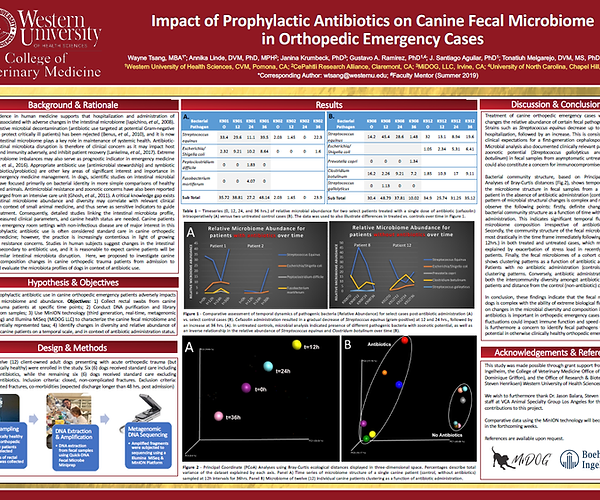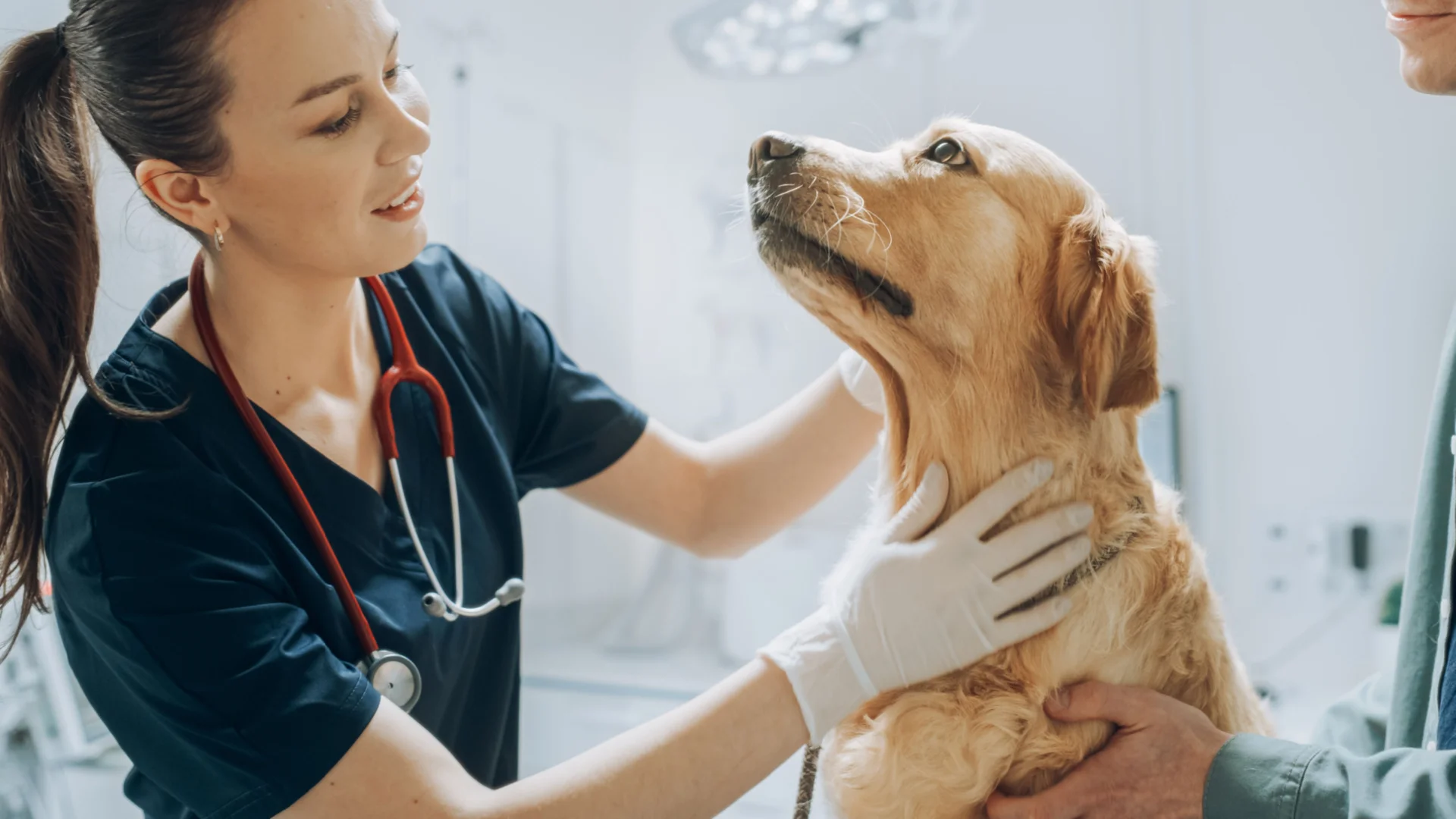“Clients expect their veterinarians to stay up to date on all matters that affect the health and well being of their non-human family members. The current technique that we have used to determine the presence and antibiotic sensitivity of organisms causing disease in our pets is over a century old.
With the emergence of dangerous antibacterial resistance, it is critical that veterinarians are able to offer laser focused diagnostics and treatment. MiDog enables us to offer care that exceeds the typical standard of care.”
Bernadine Cruz, DVM, Laguna Hills Animal Hospital Laguna Woods, CA
“I love the absolute abundance and comparing the fungal with bacterial infection. I do not worry as much about getting a false negative urinary infection reading as I do with traditional urine cultures. Several times the same urine would culture negative but MiDOG would detect pathogens.”
Michael Morgan, DVMQuail Animal Hospital, Tustin, CA
“The MiDOG All-in-One Test is amazing, I would use it instead of culture and sensitivity. Such rapid and detailed results, I will reach for MiDOG before culture next time!
Thank you very much MiDOG, for sharing the opportunity to try your technology.”
Martha Smith-Blackmore, DVM, President of Forensic Veterinary Investigations, LLC – Boston, MA
“The MiDOG All-in-One Microbial Test is our new gold standard of pathogen identification. The results are so accurate and valuable – especially with assessing both bacterial and fungal infections with the same sample.
Thank you MiDOG!”
Kathy Wentworth, DVM, Diplomate ABVP Canine and Feline Practice – PetPoint Medical Center, Irvine, CA
“The MiDOG staff was extremely helpful and supportive.”
Cathy Curtis, DVM – London, UK
“I have had great results using the MiDOG® Test. Compared to traditional culture tests, I am better able to target the treatment for dogs because the MiDOG® Test is so sensitive that it identifies all pathogens including bacteria and fungi, as well as antibiotic sensitivity.
The cost and turnaround time are about the same as a culture test, but I get much more data. The test has great performance and I believe the NGS technology will be a game changer for veterinarians treating dogs with lesions or other infections.”
Michael Kavanagh, DVM, Practice owner – Saddleback Animal Hospital, Tustin, CA
“It’s helpful to have an NGS spectrum because it gives you a broader insight of what’s happening and what might be going on.”
Richard Harvey BVSc DVD DipECVD PhD FRSB FRCVS – European Specialist in Veterinary Dermatology – Head of Dermatology, Willows Veterinary Centre & Referral Service – Solihull, England UK
“I have been using MiDog for over 4 years now and exclusively as my test of choice for all cultures for 3 years. It is so great to submit a culture and feel confident there will be a result when it comes back, especially for urine cultures. The reports were intimidating at first because they contain so much information. After the first few, I am now quickly able to glance over it and pick out the highlights. I can then come back later and pour over all the details. I have been extremely pleased with my patients’ results using the test as well. I don’t envision ever going back to traditional culture and susceptibilities again.”
Brian M. Urmson, DVM, Columbiana Veterinary Associates
“As an exotic veterinarian, there are numerous tests we have to consider to check specific bacterial and fungal organisms based on the species. MiDOG eliminates the need for many of these separate samples and provides definitive results quickly to help us treat our patients more efficiently and effectively. The lab is wonderful to work with and has never rejected our samples- they even processed a lizard toe we amputated and determined the cause of skin infection.”
Dr. Melissa Giese, Chicago Exotics Animal Hospital
“MiDOG’s diagnostic approach offers the unique ability to identify pathogens that evade traditional culture and sensitivity testing. I have found that adding a molecular based testing approach in the form of Next Generation Sequencing (NGS) from MiDOG to my routine diagnostic cultures can be extremely helpful in the identification and diagnosis of uncommon pathogens in veterinary medicine.”
Dr. Wayne Rosenkrantz, Animal Dermatology Clinic – Tustin
“She [Dr. Krumbeck] really did a great job of making complicated concepts accessible and demonstrating the value of your services. I’m really looking forward to working with MiDOG on my research project!”
Dr. Yaicha Peters, Animal Dermatology Clinic – San Diego
“As a proud collaborator with MiDOG, I deeply appreciate their dedication to fostering partnerships between industry and veterinary experts. Their commitment to enhancing diagnostic quality for veterinarians is commendable. In my experience, their support has been invaluable, earning them a ‘Double A+, Triple Star’ rating. Their assistance has been faultless, contributing significantly to the success of my projects and studies. I eagerly anticipate our continued collaboration.”
Dr. Richard Harvey, BVSc DVD DipECVD PhD FRSB FRCVS; European Specialist in Veterinary Dermatology
“We’re seeing that, if we prescribe too many antibiotics or they’re taken too frequently, animals are developing inappropriate or pathogenic strains of bacteria. We’re also seeing that our antibiotics are just not working against them anymore… It’s a good example of why we need better diagnostic testing, like MiDOG, so that we’re selecting the correct antibiotic every time our patients have an infection.”
Dr. Alissa Rexo, DVM, CVA, DACVD, Mid-Atlantic Veterinary Dermatology
“The NGS technique as offered by MiDOG is wonderful because pathogens like Melissococcus plutonius, for example, are difficult to grow and keep alive in the laboratory. A standard laboratory cannot truly examine or even properly diagnose this pathogen in bee hives at this time. But with NGS, we can reliably diagnose it.”
Dr. Joerg Mayer, Entomologist and Microbiologist at the University of Georgia
“For me, as a clinician and as a researcher, I see the immense value in the product [the All-in-One Test]. I have had great success using MiDOG clinically, including identifying Mycoplasma in a 24 year old pigeon, a Nannizziopsis spp in a ball python from a large pet distributor, Mycoplasma and Fusobacterium necrophorum co-infection in a peacock, and to identify an abnormal gut GI in a technician’s dog that tested negative for everything else (but we were able to establish what was abnormal, and work toward fixing it).”
Dr. Jeremy Rayl – Veterinarian, Block House Creek Animal Hospital, Cedar Park, Texas
“With MiDog results I not only receive a list of organisms detected in the sample, but also cell counts which allow me to target the most abundant pathogens or the most pathogenic. The identification of antimicrobial resistance genes is also helpful in selecting an appropriate antibiotic. Another benefit is that sample handling is less prone to risk of overgrowth and is stable at room temperature. Easy and informative. A great tool in our diagnostic toolbox!!”
Lauren Palmer DVM, MPH, Marine mammal Care Center Los Angeles
“If every rescue and sanctuary could run a scan on new admissions, I think it would open everyone’s eyes. These birds have been through so much and damaged by human pathogens. Plus the MiDog test was much more affordable than a battery of PCRs, several c&s, repeated tests, etc. AND non-invasive. Thank you. I would advise every sanctuary and other parrot facility to run MiDOG screening. I know it might reveal more than we want to know.”
Patricia Latas, DVM, Wild Parrot Coalition
“Quality testing is invaluable in my mind, and so far, I am putting my support behind MiDOG because it gives me this great plethora of information but also the expertise in discerning what is normal, not supportive of disease versus the alternative…. I really didn’t understand at first but once I read through all of the information – that it is using DNA of bacteria to isolate instead of lab media that our reference labs do – that is wild and limitless and I love it!”
Dr. Tara Klimovitz, Stay Pet Veterinary Hospital


